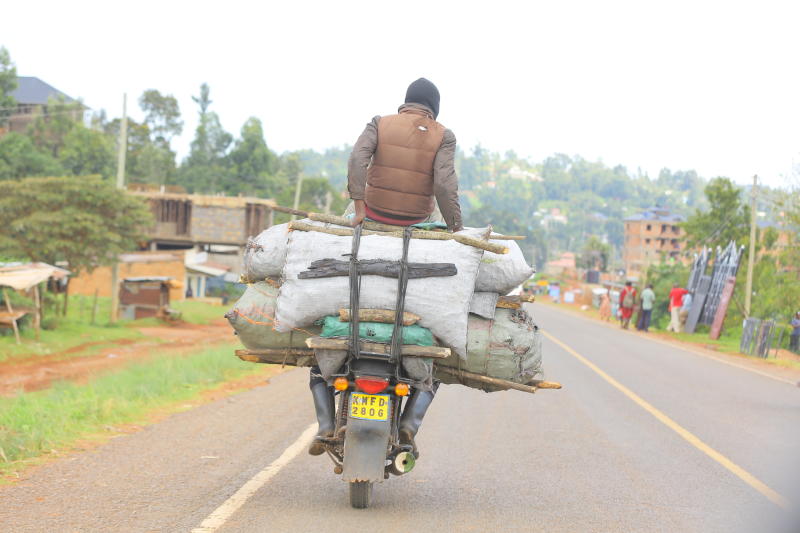Kenya’s youth, many of whom depend on the boda boda sector for income due to high unemployment rates, may soon face more challenges.
This follows the Senate’s approval of the Public Transport Motorcycle Regulation Bill, which aims to regulate the industry.
The bill, introduced by Kakamega Senator Boni Khalwale, has raised concerns over the potential negative impact on the livelihoods of those relying on this sector for their daily earnings.
With the bill now set to go before the National Assembly, there are growing fears that stricter regulations could make it harder for individuals to maintain their businesses or find new sources of income.
The fate of many young Kenyans who rely on boda bodas as a means of survival now hangs in the balance, with the proposed law stirring significant debate across the country.
The proposed law aims to bring structure to what is often regarded as a disorganized sector, but it has sparked significant opposition, including from its own sponsor, Senator Boni Khalwale.
Amid growing public pressure, Khalwale has pledged to withdraw the bill, emphasizing his commitment to the well-being of young Kenyans.
"For it to be well understood that I have the best interest of young Kenyans at heart, I will be returning to Parliament to request the withdrawal of the bill," he told Citizen Daily, referencing the rejection of the Finance Bill 2024 by the youth as a precedent for listening to their concerns.
Critics warn that the bill could jeopardize the livelihoods of thousands of young people who rely on motorcycle transport as a critical income source in a stagnant job market.
The boda boda sector has become an essential part of the economy, providing crucial mobility solutions across both urban and rural regions.
Women, in particular, are expected to feel the adverse effects, as many rely on boda bodas not just for convenience but as a vital means of access to markets, workplaces, and essential services.
Introduced in December, the law proposes strict regulations, such as limiting riders to one adult passenger, enforcing safety gear requirements, banning the transportation of heavy loads, and requiring county certification.
However, many, especially in rural areas, find it difficult to meet these requirements due to the high cost of formal training. As Mark Omondi, a boda boda operator, explains.
"Most of us learned through apprenticeship, not in driving schools. But we still have families to feed."
The impact of the proposed bill stretches beyond the riders themselves, affecting small-scale traders who rely on boda bodas for daily transport.
For example, Mama Mboga, who depends on the motorcycles for quick delivery of goods, faces the prospect of reduced earnings as the cost of transportation is expected to rise due to added fees from the operators.
This comes at a time when the cost of living is already high, further squeezing people with low disposable incomes.
Terresia Kerubo, a kiosk owner in Umoja I Estate, voiced her frustration with the bill, saying, "Now I will have to pay more because if I calculate the different items that I buy at the market, they are close to the 50 kg limit that I usually carry on my lap."
"Now I will have to take a separate bike.” She added, "What will I take home to my children if almost 50 percent of my profit I will be using on transport?"
While there is clear dissatisfaction among some, others, like 24-year-old rider Lewis Kuya, see merit in parts of the bill. "Things like helmets and staying in our lane make sense—we need safety too," he said.
However, he raised concerns about the additional costs, especially with both county and NTSA fees. "At Sh100 per trip, how do I cover rent and bills?"
Kuya suggests that digital-hailing platforms could be the future as they might allow for better regulation without hurting riders' incomes.
Yet, he also notes that such platforms remain largely inaccessible in rural areas, leaving many riders without this option.
As the bill awaits discussion in the National Assembly, there is growing demand for more consultations to ensure the reforms address both safety and the economic realities faced by vulnerable groups reliant on the boda boda sector.
